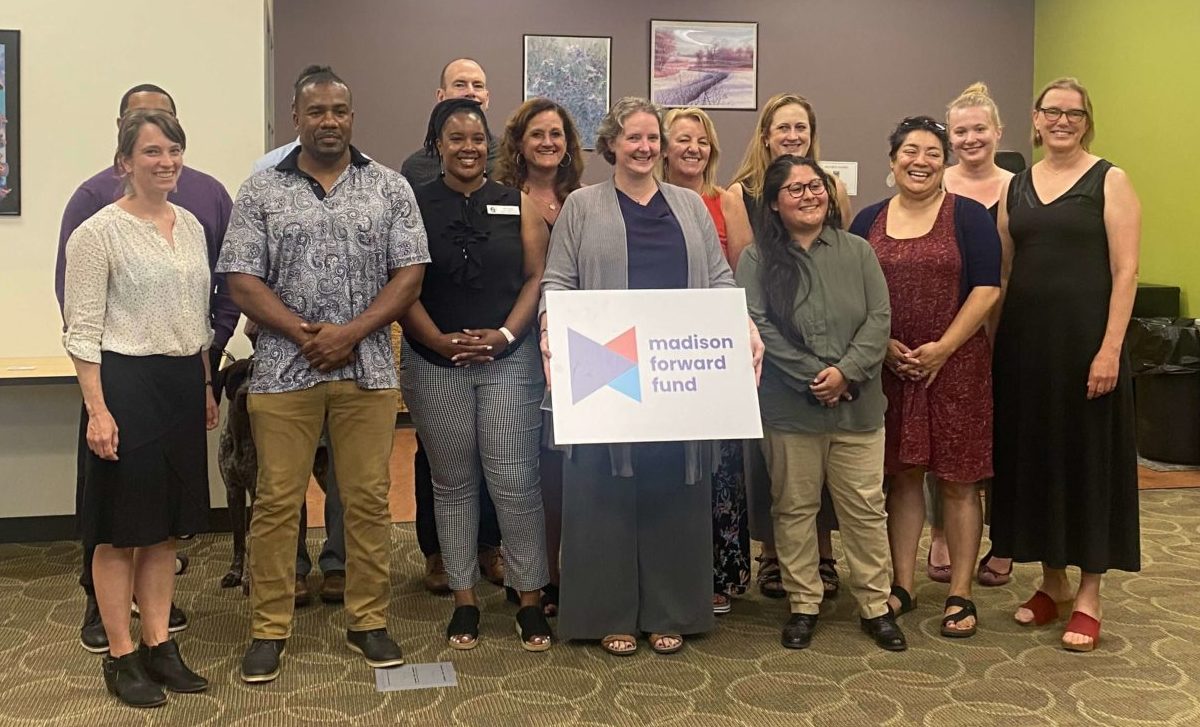
The City of Madison has collaborated with multiple organizations, including Mayors for a Guaranteed Income, TASC, the Institute for Research on Poverty at UW-Madison, and the Center for Guaranteed Income Research at the University of Pennsylvania, to launch the Madison Forward Fund, a program that will give 155 Madison families $500 per month for one year in an effort to study the effects of guaranteed basic income.
At a news conference Tuesday, Mayor Satya Rhodes-Conway, along with Council Vice President Jael Currie and Dr. Katherine Magnuson from UW-Madison’s Institute for Research on Poverty, gave their remarks on the guaranteed income pilot that they say will provide financial stability for low-income Madisonians.
“A guaranteed income is meant to supplement, not replace, the existing social safety net and to be a tool for racial and gender equity. The Madison Forward Fund is a year-long guaranteed income experimental program for Madison residents. It’s funded entirely by charitable donations,” Rhodes-Conway said. “The purpose of this program is to help our most vulnerable citizens during these tumultuous times, but also to build momentum for a sustained federal program that will bring stable support for families.”
Rhodes-Conway said the Economic Policy Institute recently found that the average cost of infant care in Wisconsin is 48% more expensive than the average cost of a public college. With that in mind, Rhodes-Conway and the City of Madison have teamed up with more than 80 participating mayors and cities, through the Mayors for a Guaranteed Income program, to advocate for a guaranteed income at the local, state, and federal levels, in order to ensure low-income and vulnerable families with the right to basic human needs.
“Now is the time to reimagine and rethink our economic structures by providing a guaranteed income. Guaranteed income offers dignity and self-determination that contrasts the archaic, one-size-fits-all approach we often find in the fields of human and social services,” Currie said. “Unrestricted guaranteed income strains from the historic approach of dictating how, when, and what terms individuals can build their lives. This is a key component of empowerment.”
The guaranteed income program comes with “no strings attached,” meaning that participants can spend the money they receive on whatever they need and whenever they need it. This unconditional financial support is needed to empower low-income families to make the best choices for their growth and stability during hard times, while also providing proof of concept for a potential national program.
Eligible participants who apply will be entered into a pool where 155 families will be randomly selected to receive the guaranteed income for 12 months, while participants will also receive the option to be compensated for taking surveys. Applicants who are not chosen to receive guaranteed income, but are chosen for a control group, will be able to be compensated for taking surveys as well.
To be eligible, families must bring in less than 200% of the federal poverty level – $55,500 for a family of four. Madison residents can apply online up until July 3, 2022, at madisonforwardfund.wisc.edu, where they can apply electronically or by phone in English, Spanish or Hmong.
“Having good evidence and being able to tell compelling stories about what money can do for families and communities is critically important,” Magnuson said. “I am proud, as a citizen of Madison, to be supporting this effort and I’m even more excited for knowing that we’re going to learn a lot together. Most importantly, we’re going to learn from the families who are participating in the program and we’re going to bring that evidence to policymakers, advocates, and policy administrators and convince them that cash, actual cash, can be a powerful tool for fighting poverty.”



